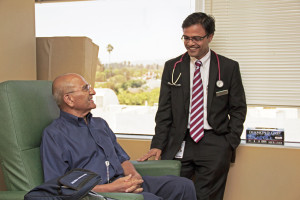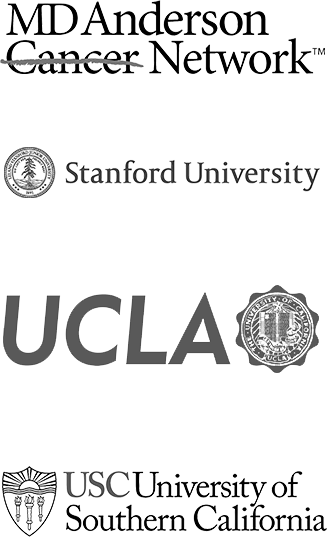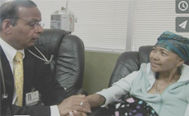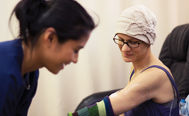Kidney Cancer
The kidneys are located deep within the torso on each side of the backbone and function as filters processing impurities from the blood. Cancer starts in the cells of the kidneys, and cancer type is determined by the cell origin. The two types of kidney cancer which occur more frequently are renal cortical tumors (RCT) and transitional cell tumors (TCT), and of these types, RCT is diagnosed for approximately 90% of kidney cancers. Since the two subtypes have unique originating cells, they develop differently and for that reason, require different treatment and have a different prognosis.
Kidney Cancer Overview
There are documented studies showing that certain lifestyle factors can increase the risk of developing kidney tumors. Individuals who smoke, have high blood pressure, consume a high-fat diet, and are overweight can possibly increase their risk of developing kidney cancer. Families with a history of kidney cancer or certain hereditary diseases can also have a greater chance of developing the disease.
 Attention to the signs and symptoms of this disease and knowledge of family medical history can help with an early diagnosis. A specialist should be consulted if cancer is suspected.
Attention to the signs and symptoms of this disease and knowledge of family medical history can help with an early diagnosis. A specialist should be consulted if cancer is suspected.
Led by Dr. Sant Chawla, Cancer Center physicians are experts in the diagnosis and treatment of kidney and other cancers. We apply a multi-disciplinary approach to patient care, and we encourage our patients’ participation in their own treatment which helps them to make informed decisions. The Center’s oncologists have led advanced clincial cancer research and conducted groundbreaking work in various cancers. Our medical team is dedicated to life-saving cancer treatments and through our research, we have helped our patients by providing them with the most advanced therapies available.
Symptoms
Since the kidneys reside deep within the body, symptoms typically are not noticed until a tumor is quite large. While symptoms vary by person, the most common is blood in the urine.

Other kidney cancer symptoms could include:
- Rapid weight loss
- Unexplained and prolonged fever
- A lump or mass on the side or lower back
- Fatigue or prolonged poor health
- Lingering dull ache or pain in the side, abdomen or lower back
- Swelling of ankles and legs
If any of these symptoms persist, a doctor must be consulted, but keep in mind that these symptoms could signify another medical condition and not cancer.
Following a medical exam and review of your medical history for any risk factors, your doctor might recommend some tests to confirm whether or not you have kidney cancer and to determine its stage.
These tests could include:
- Blood and urine tests
- Imaging tests
- CT or CAT (computed axial tomography) scans
- MRI (magnetic resonance imaging) scans
- Ultrasound
- Chest X-Ray
- Bone Scan
If screening produces abnormal results indicating cancer, the next step could be a biopsy of tissue to conclusively diagnose whether or not there is cancer and if so, which type of kidney cancer.
Treatment
Depending on the stage of the disease, its type and other factors, treatment options can include one and possibly a combination of the following:
- Chemotherapy
- Target therapies
- Radiation therapy
- Surgery
The center encourages patient involvement throughout treatment, and we prefer discussing all treatment options as well as possible side effects with our patients and their caregivers.
Our oncology center evaluates the stage and grade of the tumor, previous treatments (if any), extent of the cancer, biopsy results, and other unique factors then discusses results and recommended decisions with the patient. Our treatment plans are multi-modal, and we develop and implement the most effective course of treatment with the collaboration of prominent pathologists, radiologists, radiation oncologists, and surgeons from institutions such as Cedars Sinai, USC, UCLA, Stanford, M.D. Anderson, and St. John’s. We are leaders in advanced clinical research and trials which gives us access to the most noveldrugs which allows us to exceed standard treatment whenever needed.
Read more about kidney cancer from WebMD.com.
Clinical Trials
Our Los Angeles physicians are actively involved in clinical trials, and we work with the newest drugs. This involvement enables our patients to benefit from the most advanced treatments possible.
Contact the Cancer Center Experts for More Information
We are deeply committed to our patients’ emotional and physical well-being. Everyone receives the careful attention of an expert team of medical specialists and when helpful, opportunities exist for participation in clinical trials. Please contact our center at 310-552-9999 to schedule a consultation with one of our physicians.
Next, read about genitourinary cancers.



